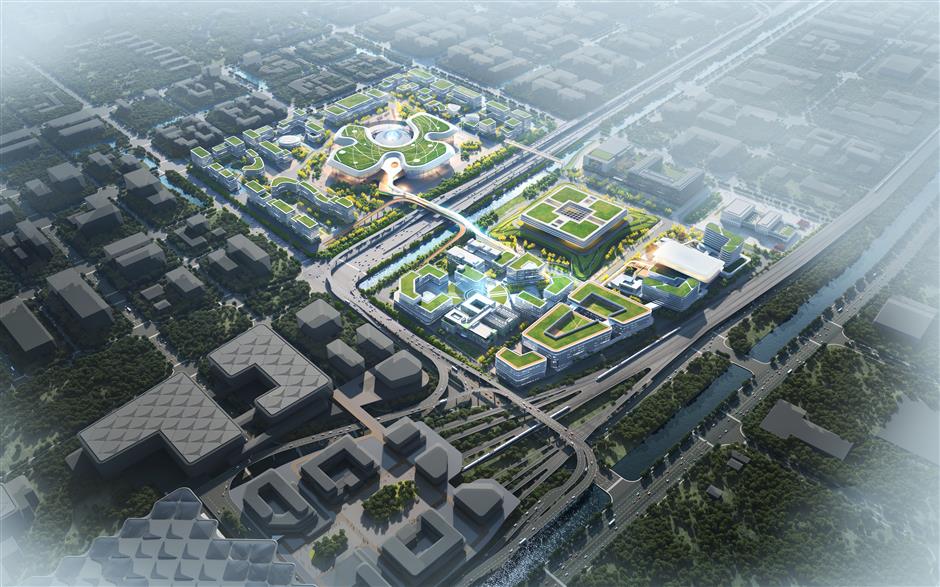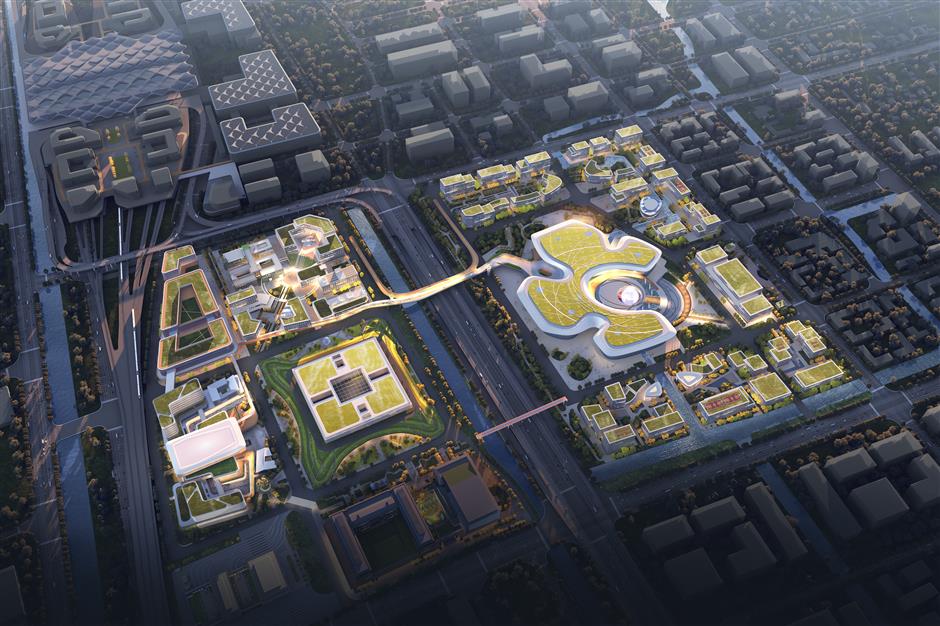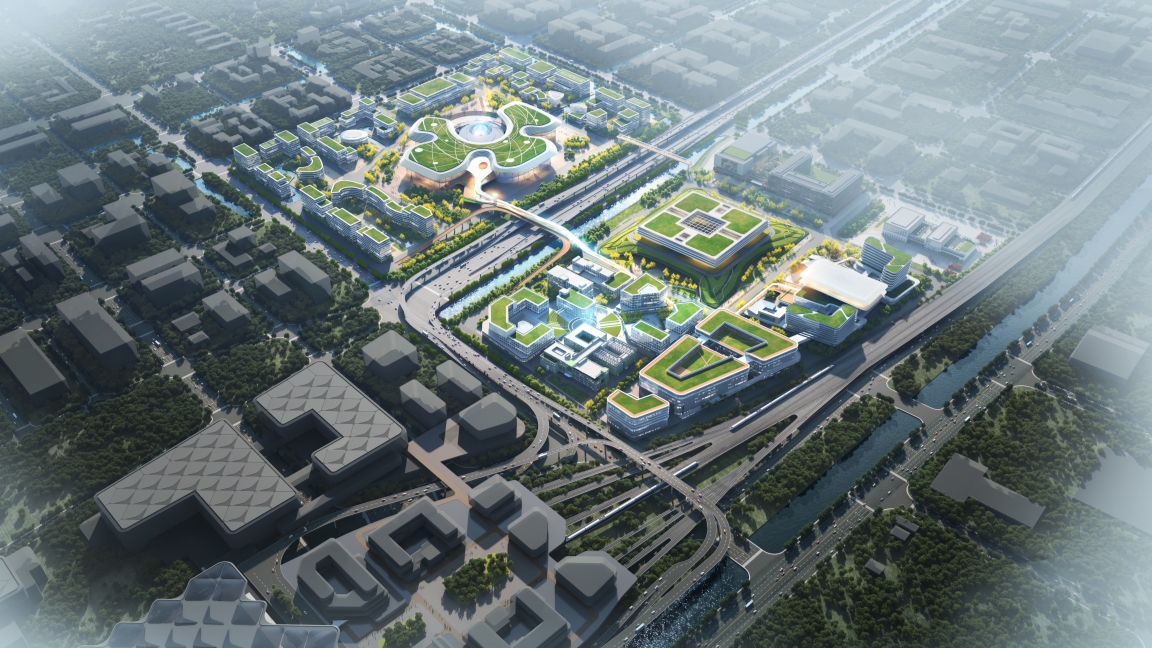

An artist's impression of the Shanghai Eastern Hub International Business Cooperation Zone.
A new international business district that permits visa-free entry for invited foreign visitors is set to begin trial operations by the end of 2025, Shanghai officials announced on Friday.
The Shanghai Eastern Hub International Business Cooperation Zone is situated near Pudong International Airport and the upcoming Shanghai East Railway Station.
Spanning an area of 880,000 square meters, approximately the size of 120 football fields, the district is part of China's larger initiative to enhance global connectivity and promote economic openness.
Approved by China's State Council in February 2024, the zone will be developed in three phases: trial operations will commence by 2025, full enclosure with essential facilities will be achieved by 2028, and the project will be fully completed by 2030.
On Friday, three core regulations governing customs, immigration, and operations officially took effect.
Under these regulations, foreign visitors invited by registered companies may enter the zone without the need for a Chinese visa. They can stay for up to 30 days, with the option to extend it.
Entry and exit procedures have been streamlined – visitors can arrive at Pudong Airport, enter the zone directly, and later complete their departure procedures within the district.
Huo Li, deputy chief of the Shanghai General Station of Immigration Inspection, stated that invited visitors can bypass visa applications by presenting an invitation letter and their passports at the airport.
Those wishing to travel to Shanghai or other parts of China can complete the formal immigration process within the zone.
Domestic travelers can access the zone by obtaining a pass issued through an online platform.

The zone is expected to support three core functions: facilitating international business exchange, hosting high-end exhibitions, and improving training services, said Wu Qunfeng, deputy director of the zone's administrative bureau.
Wu said the zone allows overseas professionals with certified credentials to work in legal, financial, consulting, and other sectors. It is also a pilot area for foreign-invested hospitals, aiming to offer international-standard healthcare for business visitors.
The zone will include high-standard facilities for research and training, including biotech labs, AI centers, and aerospace testing hubs. A mixed-use commercial complex will feature hotels, retail shops, entertainment venues, and public leisure spaces.
Equipment and materials needed for operations can be imported under a simplified customs system with potential tax exemptions.
Visitors can carry reasonable personal items with only basic safety and quarantine checks. Companies may also use the zone for bonded testing, e-commerce, and offshore business activities.
The zone will offer full-service support for international visitors, including multilingual assistance, airline and travel services, high-speed internet, and medical care that meets global standards.
Multiple payment methods, including international cards, mobile apps, and cash, will be accepted to ensure a smooth experience for cross-border business and cooperation.
Officials said the next steps include pushing for more policy breakthroughs to meet the needs of international businesses.

